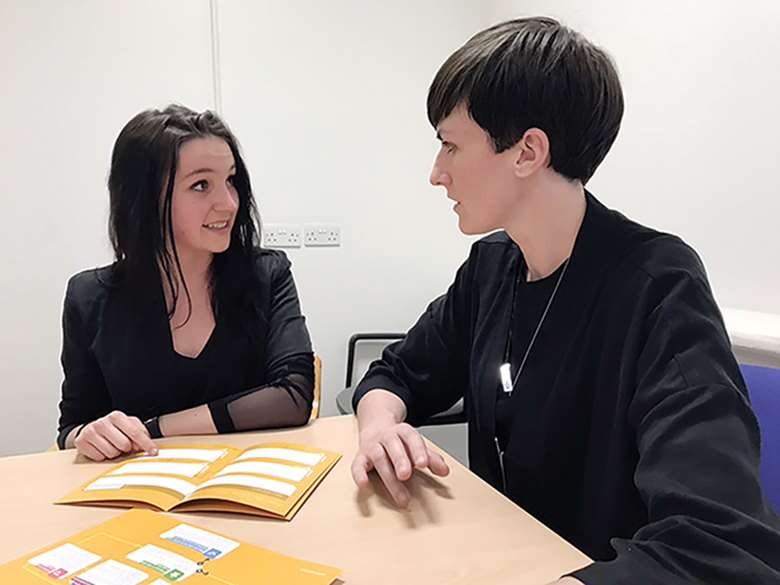Open Talk
Neil Puffett
Monday, April 10, 2017
Open Talk trains mental health professionals to involve young people in decisions about their care.

- The project received £80,000 in funding for 2016/17 through the Department of Health and Health Education England's children and young people mental health innovation fund
- Initial analysis shows that the training is having a significant impact on professionals' attitudes towards shared decision making with young people
ACTION
Open Talk is a project to train mental health professionals to involve young people in decisions about their care. The programme has been co-produced by young people with experience of community and inpatient mental health services, who co-deliver the training.
The central ethos of the programme is to build on the existing skills and practice of child and adolescent mental health services (CAMHS) professionals and explore challenging and complex scenarios to see how decision making can be made more open, explicit, and collaborative with children and young people.
The project was initially handed one year's funding of £80,000 for 2016/17 through the Department of Health and Health Education England's children and young people mental health innovation fund. Since then the project has been commissioned by two charities and by the national Thrive initiative - a mental health programme for children and young people.
Kate Martin, director of consultancy firm Common Room, which has developed Open Talk, says the programme is also garnering interest from commissioners in clinical commissioning groups and other organisations.
Through the initiative, a group of paid staff aged between 17 and 23 work with focus groups of local young people to understand how they want to be involved in the decision making process. Martin says it is important to the programme that the staff are paid - in order to "recognise them for the skills and experience they bring".
Their findings are then passed on to CAMHS professionals in training sessions that involve role-play exercises and examples. Up to 25 CAMHS professionals at a time take part in the training.
"Open Talk is about trying to understand what shared decision making looks like in children and young people's mental health services," Martin says.
"It is quite focused in terms of drilling down into the complexities of decision making and practice with various role plays and examples.
"There is often a difference between the intent of professionals to involve young people and how young people perceive or experience that."
Martin says the findings from the focus groups are used within the training sessions with professionals to assess how settings are currently doing when it comes to involving young people in discussions about their care. This allows for the identification of current areas of strength as well as areas where improvements need to be made.
Professionals are also taken through practice examples - looking at where there could be an opportunity for young people to be involved and engaged in the decisions. They go back six to eight weeks after the initial training to reflect on what has changed within practice.
There is also an online educational resource featuring an interactive version of the open decision making model to enable practitioners to apply this to their practice, and a resource hub to enable healthcare professionals to share best practice tools and resources, as well as practice examples sourced from a variety of CAMHS settings and focusing on a range of decision types.
"On a basic level, young people have a right to be involved in decisions about their care and support," Martin says.
"That is particularly crucial with mental health because mental health support does not work unless people feel empowered and are engaged to be part of therapy and support. They feel more ownership of their care and are more likely to engage with their care.
"It is going to be much more effective in the long-term. We also know that it helps professionals be more informed about what is important to young people."
The types of decisions that the project aims to get professionals to involve young people with includes the type of support that is best for them, who supports them, and decisions about when to end help and support.
IMPACT
The training has been evaluated by the Anna Freud Centre. Although the full evaluation report is yet to be published, Martin says initial analysis has shown that the training is having a significant impact on professionals' attitudes towards shared decision making with young people.
"We noticed an improvement in consensus and attitudes to shared decision making with young people," Martin says.
"We are really keen to do more work to see if we are making these changes in professional attitudes, what impact it is having on young people's experience of using mental health services and how involved they feel."




